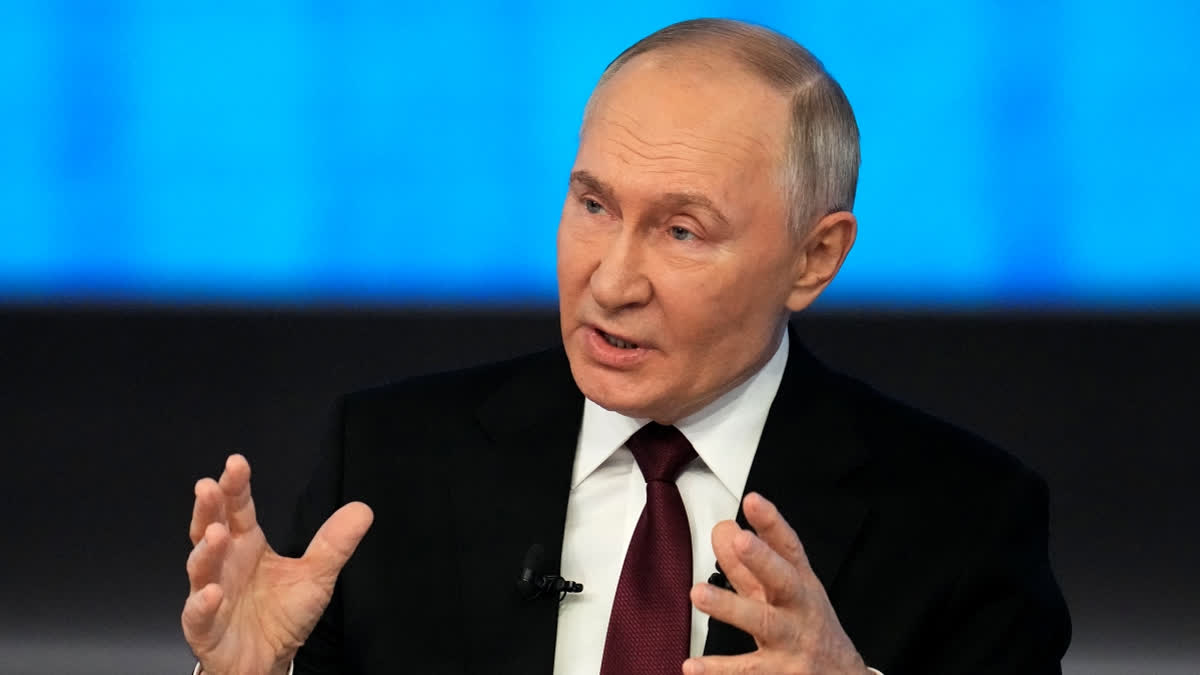Moscow: Russian President Vladimir Putin boasted about the economy and hailed his troops' gains in Ukraine during his annual news conference and call-in show Thursday, an event he uses to reinforce his authority and demonstrate sweeping control of the country’s political scene.
Putin began the tightly choreographed session by saying that Russia's economy is on track to grow by nearly 4% this year. He acknowledged that consumer prices are high, with inflation at 9.3%, but insisted that the economic situation remains “stable.” Putin, who has held power for nearly a quarter-century, also said the military was "advancing toward achieving our goals” in what he calls the special military operation in Ukraine, where his forces have made slow but steady gains.
“The situation is changing radically, we are advancing along the entire front line,” he said, asking people in the audience to unfurl a banner presented to him by marines fighting the Ukrainian forces that launched an incursion into Russia's Kursk region. That incursion has proved a major embarrassment for the Kremlin. Asked when Russian troops will drive Ukrainian forces out, Putin responded that “we will certainly kick them out” but wouldn't say how long it will take.
In response to a question about a new hypersonic intermediate-range ballistic missile that Russia used for the first time last month to strike Ukraine, Putin scoffed at claims by some Western experts that it could be intercepted by NATO's air defenses. He mockingly challenged Ukraine's Western allies to a “high-tech duel,” suggesting that Moscow could give advance notice of a strike on Kyiv with the Oreshnik missile — and see if the West could protect the city. "Let's see what happens,” he added with a smile.
Putin has said Russia's use of the Oreshnik was a response to the West granting permission for Kyiv to use their longer-range weapons for strikes on Russia. He threatened that Moscow could launch more strikes on Ukraine with the missile and warned it could also be used to target military facilities of the countries that allowed Ukraine to use their missiles for attacks deep into Russia.
